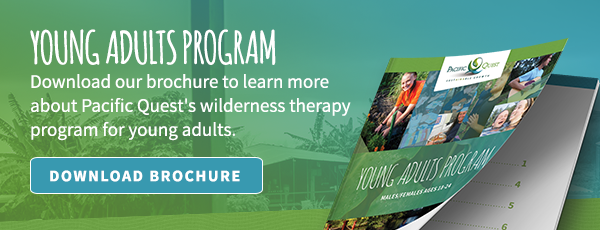At colleges across the country, teachers and administrators are noticing a disconcerting trend: a dramatic decrease in student resilience. Today’s college students are critically lacking in the skills they need to handle the ups and downs of daily life, especially as they make the transition to adulthood. In fact, a study by the National Alliance on Mental Illness revealed that 80 percent of college students feel overwhelmed by the pressures they face, and 50 percent are so anxious it affects their schoolwork.
Peak Anxiety Times
While school mental health services are bombarded with requests for counseling or other help, parents get calls from students wanting to drop out and come home. That’s especially true during times when the pressures on students peak, including:
- Freshman year, as students have to adapt to an environment where they’re expected to be self-reliant rather than relying on teachers to keep them organized, send them reminders, offer multiple opportunities to improve grades, etc. Students living away from home for the first time have additional pressures stemming from having to take on adult chores like grocery shopping, paying bills, cleaning, and so forth.
- The beginning of a new semester, when students must adjust to a new schedule and to new teachers.
- The end of a semester, when students are rushing to complete projects and cramming for finals.
- The last semester of senior year, when students have to answer the question: “What next?”
How Parents Can Help
Parents can best help their children by being prepared to help them navigate intense emotions like stress, anxiety, and depression. On a practical level, helpful responses may include:
Finding out what’s really going on: While a college student may be an adult in the eyes of the law, human brains don’t fully mature until the mid-20s. That means college students may overlook less-drastic solutions to their problems. Asking probing questions gives you a chance to find out whether the problem can only be resolved by dropping out or whether there’s another option.
Helping your student identify options and sort through the pros and cons of each: Once you thoroughly understand the problem, help your student identify options other than dropping out. Those options may include dropping a particular class, taking a leave of absence, working with a teacher to come up with a personalized solution, getting a tutor, or moving off (or on) campus. Next, discuss the pros and cons of each to help your student come up with the best solution.
Recognizing when “college stress” has evolved into something more: Parents need to know—and be on the lookout for—signs that their student is handling their stress in dangerous or unhealthy ways. Those signs may include:
- Rapid and/or extreme changes in appearance or behavior (weight gain, weight loss, sleeping too much, not sleeping at all, not bathing, not calling – or calling all the time.
- Declining grades
- Change in spending habits (could indicate a gambling problem as well as drug or alcohol abuse)
Wilderness Therapy Programs Can Help
Any of these indicators could be a sign that your college student is having a mental health crisis. And, while on-campus mental health services are an invaluable asset, students sometimes need a more intensive form of help. In the most extreme cases, in-patient treatment may be necessary. Many times, though, young adults can benefit from a wilderness therapy program like those offered by Pacific Quest. These programs combine expert counseling with the opportunity to “reset” in a safe, supportive environment far away from the stresses that initiated the crisis.
College can prove to be a challenging transition period for many families. Your “child” is now an adult (legally, at least), but they may not be ready to transition to adulthood. The solution is to understand the pressures your student is facing, and to be proactive in offering guidance, support, and—if necessary—professional help.
